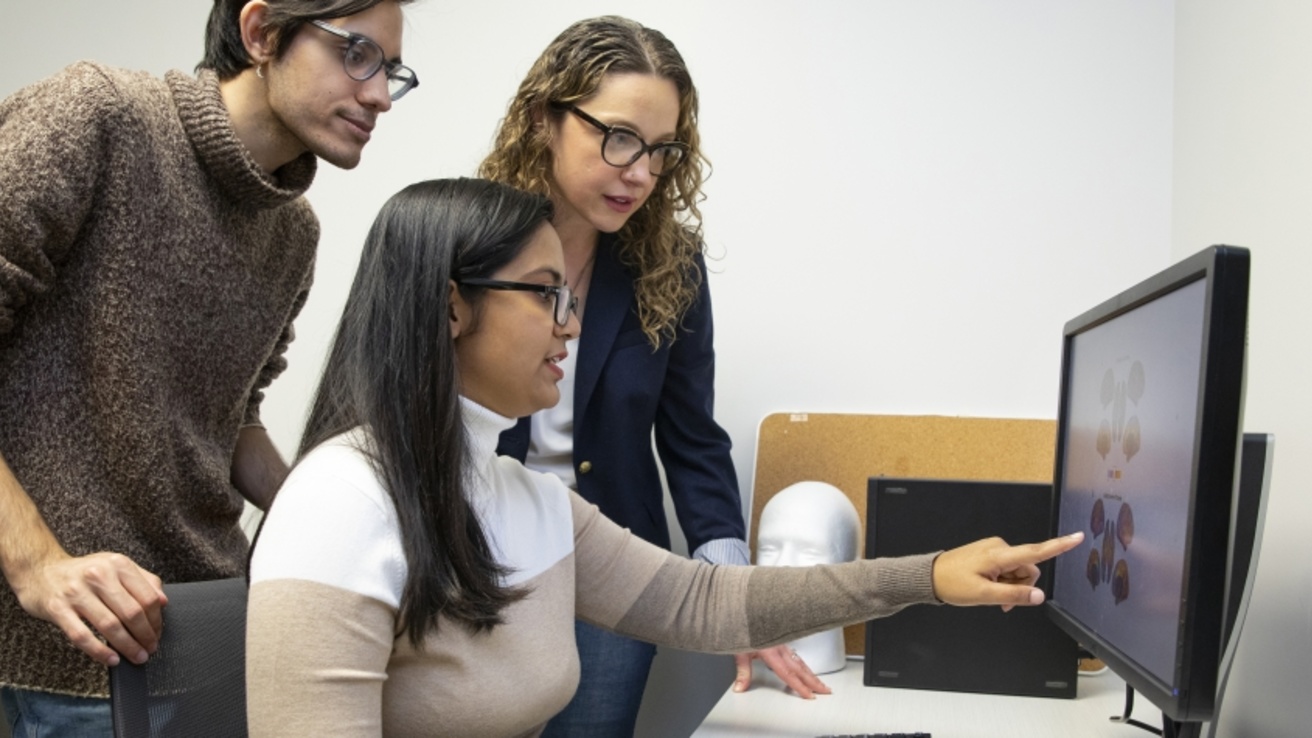Breadcrumb
- Home
- About
- Program Objective
Program Objective

Program Objective
The overarching objective of our Program is to train the next generation of behavioral science researchers to utilize biomedical methodologies and conceptual frameworks to enable transformative breakthroughs in understanding both health and behavior. The Program is designed for pre-doctoral students in Psychological and Brain Sciences who have research interests at the interface of the behavioral and biomedical sciences. The Understanding Health and Disease at the Behavioral and Biomedical Interface Training Program offers students unique funding and training opportunities, including: access to apply for two full years of funding via a T32 training grant mechanism (see below for more information), access to summer funding, formal networking and professional development events, and specific skills training (e.g. wet lab or neuroimaging techniques), in order to expand and bolster psychological research.
Background
There is a long tradition of excellence in science at the behavioral-biomedical interface at the University of Iowa. Individual scientists here have been training students to conduct interface research for many years. Several former psychology graduate students have been trained at the interface and are now in faculty positions around the country. This is a natural and long-running strength of the University of Iowa because of the close connections between researchers in the behavioral and biomedical sciences, the physical proximity of the College of Liberal Arts and Sciences (CLAS) and the Carver College of Medicine (CCOM), and the strong Clinical Science, and Neuropsychology programs involving graduate training faculty who run interface-type research programs.
The Training Grant
Recent funding opportunities from the National Institute of General Medical Sciences (NIGMS) have prioritized training in biomedical methodologies to pre-doctoral students in the behavioral sciences. The training program is supported by a pre-doctoral training grant from the National Institute of General Medical Sciences (T32GM 149386). This award enables us to continue the training opportunities from our previous Training Grant T32GM108540 (2014-2024). The aims of the grant are to support efforts to train diverse graduate students in psychology to combine their behavioral expertise with cutting-edge biomedical methodologies in order to unravel mechanisms associated with health and disease. The Training Grant provides students with training in one of two broad focus areas: Lifespan Brain Health and Psychobiology of Chronic Disease and Women's Health. Our training program provides information on career development and highlights information on diverse career pathways for the Ph.D.’s at the behavioral-biomedical interface to provide maximum flexibility and success in career choice beyond traditional academic opportunities.
Students admitted to the Training Program are eligible to apply for Training Grant support at the end of their first year to cover their second year of training. This support then may be renewed for the student's third year of training. Only U.S. citizens can apply for Training Grant support, but non U.S. citizens may participate in the Training Program and are eligible to receive support from graduate fellowships through the Training Program. The Training Program is highly committed to inclusive opportunities and students from underrepresented backgrounds as well as students with disabilities are encouraged to apply.